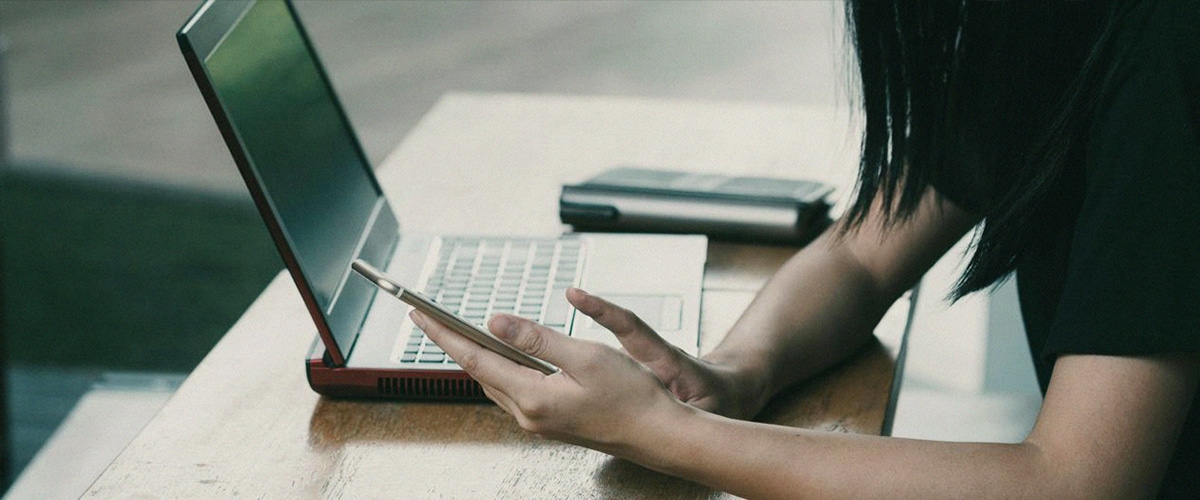ONE random day, I was chatting with my friend about screen time because I recently sold my old phone and was able to sell it at a good price. My explanation? My screen time was never above five hours—even on the busiest days of my life.
It was kind of unbelievable for her because her phone is newer than mine, but her battery health is already declining. She said her screen time goes above eight hours, sometimes even hitting 12. And that was more unusual for me.
All of a sudden, I was curious. What does she do on her phone all that time? I get it—we do everything on our phones now. But what’s the deeper explanation? Because honestly, that just sounds like too much. I couldn’t help but worry about what that does to the brain.
Luckily, she told me she’s working on it and even asked me for advice. So, in the spirit of being real with each other, no filter, here are seven research-backed signs you might be living a little too much online.
1. Your Screen Time Is Off the Charts
If you’re clocking in eight, 10, even 12 hours a day on your phone, that’s not “normal” anymore. It could be a digital meltdown, or when your online habits quietly spiral into something not-so-healthy. A 2018 study from Preventive Medicine Reports found that teens who spent more than seven hours a day on screens were twice as likely to be diagnosed with anxiety or depression compared to those who only spent an hour a day.
Try this: set app limits, use downtime mode, or put your phone in another room. If it feels like withdrawal, that’s the point.
2. You Feel Anxious or Down After Scrolling
You go online to chill, only to end up feeling worse. If social media leaves you drained or insecure, you’re not imagining it. The National Institute of Mental Health warns that constant online exposure, especially to curated, filtered lives, can fuel anxiety, depression, and loneliness.
Try this: check in with yourself. How do you feel after doomscrolling or stalking someone’s feed? If it’s not giving peace, mute or unfollow without guilt.
3. You Keep Comparing Your Life to Everyone Else’s
If your self-worth takes a hit after every scroll, that’s your brain reacting to “highlight reel syndrome.” This happens when you constantly compare your everyday life to the picture-perfect moments others post online. According to a 2021 study in the Journal of Social and Clinical Psychology, heavy Instagram use is linked to lower self-esteem and body image issues, especially in young women. But honestly, it hits all of us (Yes, all of us).
Try this: remember, no one’s life is that perfect. Curate your feed to show real people, not just influencers. And maybe keep a note of your wins IRL, too.
4. You’re Ghosting Real Life (Without Meaning To)
Ever hang out with someone who’s there but not really there because they’re glued to their phone? Perhaps, you realized you’re that person? The World Health Organization points out that online overuse can lead to social withdrawal and a decline in meaningful offline connections.
Try this: Set “no-phone zones” when you’re with friends or family, even for just an hour. That eye contact? Elite. That convo? Worth it.
5. Your Sleep’s a Mess (Thanks, Blue Light)
If you’re on TikTok ‘til 2:00 a.m. and can’t wake up for class or work, we have a problem here. The Ohio State University’s Wexner Medical Center says screen use before bed suppresses melatonin production, making it harder to fall and stay asleep. That’s literal brain science.
Try this: create a wind-down routine without screens. Try a podcast, journal, or just stare at your ceiling and vibe. Anything but opening another app.
6. Your Body’s Lowkey Breaking Down
That tech neck? Dry eyes? That random back pain? Real. Long screen hours can cause physical strain, especially if you’re hunched over your phone like Gollum. Medical News Today says excessive device use can trigger everything from headaches to posture issues.
Try this: follow the 20-20-20 rule. Every 20 minutes, look at something 20 feet away for 20 seconds. Stretch. Move. Fix your posture.
7. You Panic When You’re Offline
No WiFi? No data? No dopamine? If you feel itchy or anxious being away from your phone for even a bit, you might be digitally dependent. The American Psychiatric Association doesn’t officially call it an addiction (yet), but research shows withdrawal symptoms and compulsive checking mirror behavioral addictions.
Try this: start small. Try going out without your phone for 30 minutes. Eat lunch without checking anything. Survive one LRT (Light Rail Transit) ride without scrolling. You got this, my friend. You got this!
Let’s be real
This list? Easier said than done. I know it’s never easy to change habits that feel like second nature, especially when the digital world is where we work, chill, and connect.
But here’s the thing: showing up for yourself is always worth it.
You don’t need to delete everything or live off the grid. Just be more mindful, more present, more you outside the screen. One small shift today can mean a little more peace tomorrow. So, unplug when you can, look up, breathe deep, and remember, life’s happening now, not just online.
With reports from Kyla Vivero
How useful was this post?
Click on a star to rate it!
Average rating 0 / 5. Vote count: 0
No votes so far! Be the first to rate this post.
We are sorry that this post was not useful for you!
Let us improve this post!
Tell us how we can improve this post?







